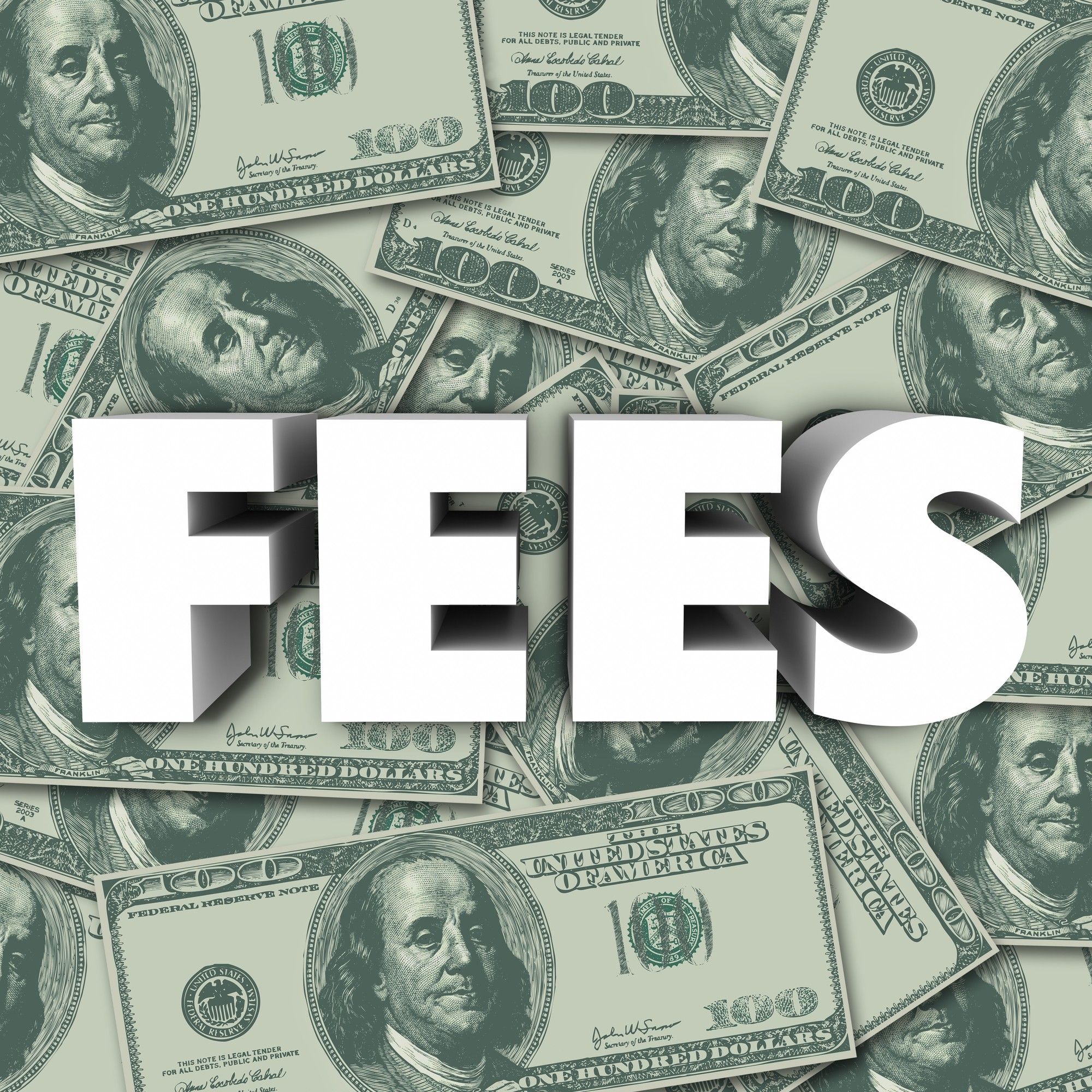Top Class Actions’s website and social media posts use affiliate links. If you make a purchase using such links, we may receive a commission, but it will not result in any additional charges to you. Please review our Affiliate Link Disclosure for more information.
When times are tough and money is tight, the last thing a cash-strapped consumer can afford is extra banking fees.
Though there are occasions when those fees are unavoidable, there are also times when they are excessive and unfair. Some banks and credit unions may be using unfair or deceptive practices to maximize the amount of non-sufficient funds fees, or nsf fees, it can charge customers.
Consumers who want to avoid fees associated with bouncing a check or having insufficient funds in their accounts to cover a transaction can benefit from understanding why and how Bell Bank, and others, assesses fees and what can be done about it.
Non-Sufficient Funds Fee Definition
An example of an NSF fee is what happens when a checking or savings account doesn’t have enough money to cover a consumer’s transactions. In layman’s terms, it is also known as bouncing a check, or in extreme cases, it is called writing bad checks.
Writing bad checks typically refers to an intentional practice in which the check-writer is knowingly trying to defraud a business and the bank. This can be classified as a criminal act.
Not everyone who writes a bad check or bounces a check does so intentionally. Often, bounced checks are the result of bad timing in which deposits haven’t cleared before a draw on the account is made.
When a person writes a check to pay for something, the check is provided in lieu of cash to the person or business being paid. The check recipient either cashes or deposits the check at their own bank. The recipient’s bank contacts the check writer’s bank and requests the transfer of cash. The check writer’s bank then withdraws the money from the check writer’s account and sends it to the recipient for payment – unless there are insufficient funds in the account to deliver on the promised amount.
When there are insufficient funds, the check “bounces” and the payment is not fulfilled. The check writer is then charged a non-sufficient funds fee for the error, explains consumer financial services website WalletHub.
Why Does Bell Bank Charge a Non-Sufficient Funds Fee?
Citing the Consumer Financial Protection Bureau, MagnifyMoney.com reports that non-sufficient funds fees and overdraft fees account for some $17 billion in annual revenue for banks.
Overdraft fees are different from non-sufficient funds fees. Some banks and credit unions offer customers overdraft protection, which means that if the customer writes a check for an amount in excess of what’s in their account, the bank will pay the difference and complete the transaction. If that happens, the bank charges an overdraft fee for doing so.
In both cases, the fees, like all other banking fees, are meant to cover the administrative costs of the transaction.
Some bank customers have been subject to multiple non-sufficient fund fees on the same bounced check if and when their bank attempts to process a payment a second, or subsequent time. Many consumers consider repetitive fees to be excessive and unfair.
Repetitive fees may occur when a customer attempts to make a purchase and does not have enough money in their account to cover the cost of the transaction. In these cases, the bank will deny the transaction and assess a non-sufficient funds fee. However, according to reports from bank customers and members of many credit unions, these financial institutions may attempt to reprocess the failed transaction a second or third time.
These attempts are often done without the knowledge or authorization of the consumer. However, despite not knowing about these subsequent attempts, the customer may be assessed a new NSF charge for each time the transaction is attempted and fails. Some consumers have reported being unaware that their bank tried to reprocess the transaction multiple times until reviewing bank statements and discovering multiple NSF fees. As these fees are generally between $27 and $35, multiple fees may quickly add up to over $100.
State laws typically limit the amount a financial institution can charge for a single NSF fee. Common state caps for NSF fees are $20, $25, and $35. Delaware and Mississippi each have a $40 per fee cap. Some states, instead of having a flat fee, cap these fees at a maximum percentage of the check amount.
In addition to these fees being predatory and deceptive, a consumer who was assessed multiple fees over a single failed transaction claims the additional fees may violate some banks’ own policies.
However, due to the potential to rake in hefty profits, banks may be incentivized to continue charging multiple NSF fees. NSF and overdraft fees bring in billions of dollars a year in profit from overdraft and NSF fees. In 2019, banks made nearly $12 billion from these fees.
One of the worst aspects of unfair or excessive NSF fees is that the charges most heavily impact those who can least afford them. Indeed, hefty bank fees are pushing poor Americans away from traditional banking to alternative financing options that don’t charge these kinds of fees but often at a high cost.
How Much Is a Bell Bank Non-Sufficient Funds Fee?
On average, according to Forbes, banks charge $35 per NSF fee.
Bell Bank charges its customers $33 for every instance of insufficient funds in their account to cover a check they have written.
 Can You Request an NSF Fee to Be Returned?
Can You Request an NSF Fee to Be Returned?
Customers who have been charged a non-sufficient funds fee, or multiple fees on the same failed transaction, are able to request the charges be reversed. Banking experts recommend the account owner be sure the account has a positive balance at the time the request is made.
Bank Fee Bonanza Could End with Federal Action
The billions of dollars banks bring in each year by assessing various charges, including non-sufficient fund fees, may soon be a thing of the past. According to CNN Business, these fees are mainly paid by low-income customers who can least afford them. However, with a change in leadership, the federal government may be poised to crack down on bank fees.
Presiden-elect Joe Biden has pledged to do something about abusive fee practices by banks. Biden would likely replace the director of the Consumer Financial Protection Bureau (CFPB), a federal agency created in 2010 to monitor financial institutions. The CPFB has reportedly received numerous complaints about bank fees.
Experts told CNN Business that the CFPB could do more to protect consumers from excessive bank fees by waiving fees in some situations or lowering fee amounts. In addition, lawmakers want banks to be more flexible and consider allowing customers to pay overdraft fees when they are able, not with their next deposit, to avoid getting trapped in a fee cycle.
Help can’t come too soon. CNBC reports that last year, large banks alone charged $11.68 billion in non-sufficient fund and overdraft fees. Experts say that as the coronavirus pandemic drags on and continues to put a damper on the economy, these fees will only become more burdensome to working Americans.
“Maintaining overdraft fees as business as usual is really hurting people, especially in a time when people are experiencing a lot of financial distress,” one advocate told reporters.
When Should You File a Non-Sufficient Funds Fee Lawsuit?
In some instances, charging non-sufficient funds fees might be an unfair or deceptive business practice and sometimes the only recourse a consumer has to fight these practices is pursuing legal action. Bank and credit union customers across the country have filed lawsuits over similar unfair business practices.
Capital One Bank, Navy Federal Credit Union, Digital Federal Credit Union, and Bank of America have all been hit with litigation over NSF fees.
A number of banks and credit unions are currently under investigation for their NSF fee practices including:
- Bancfirst
- Bell Bank
- Busey Bank
- Center Bank
- CenterState Bank
- Flagstar Bank
- Glacier Bank Wings Federal Credit Union
- Midwest One
- NBT Bank
If you have been improperly charged non-sufficient funds fees — such as being charged more than one fee for the same bounced check because your financial institution tried to process it more than once– you may have grounds to bring legal action, either individually or as part of a class action.
Consulting with a qualified attorney who has experience working on these types of cases is a good first step in determining if a lawsuit is warranted.
Filing a lawsuit can be a daunting prospect, so Top Class Actions has laid the groundwork by connecting you with an experienced attorney. Consulting an attorney can help you determine if you have a claim, navigate the complexities of litigation, and maximize your potential compensation.
Join a Free NSF Fee Class Action Lawsuit Investigation
You may qualify to join this NSF fee class action lawsuit investigation if you were unfairly charged NSF fees by one of these banks:
- Bancfirst
- Bell Bank
- Busey Bank
- Center Bank
- CenterState Bank
- Flagstar Bank
- Glacier Bank Wings Federal Credit Union
- Midwest One
- NBT Bank
ATTORNEY ADVERTISING
Top Class Actions is a Proud Member of the American Bar Association
LEGAL INFORMATION IS NOT LEGAL ADVICE
Top Class Actions Legal Statement
©2008 – 2024 Top Class Actions® LLC
Various Trademarks held by their respective owners
This website is not intended for viewing or usage by European Union citizens.


 Can You Request an NSF Fee to Be Returned?
Can You Request an NSF Fee to Be Returned?












